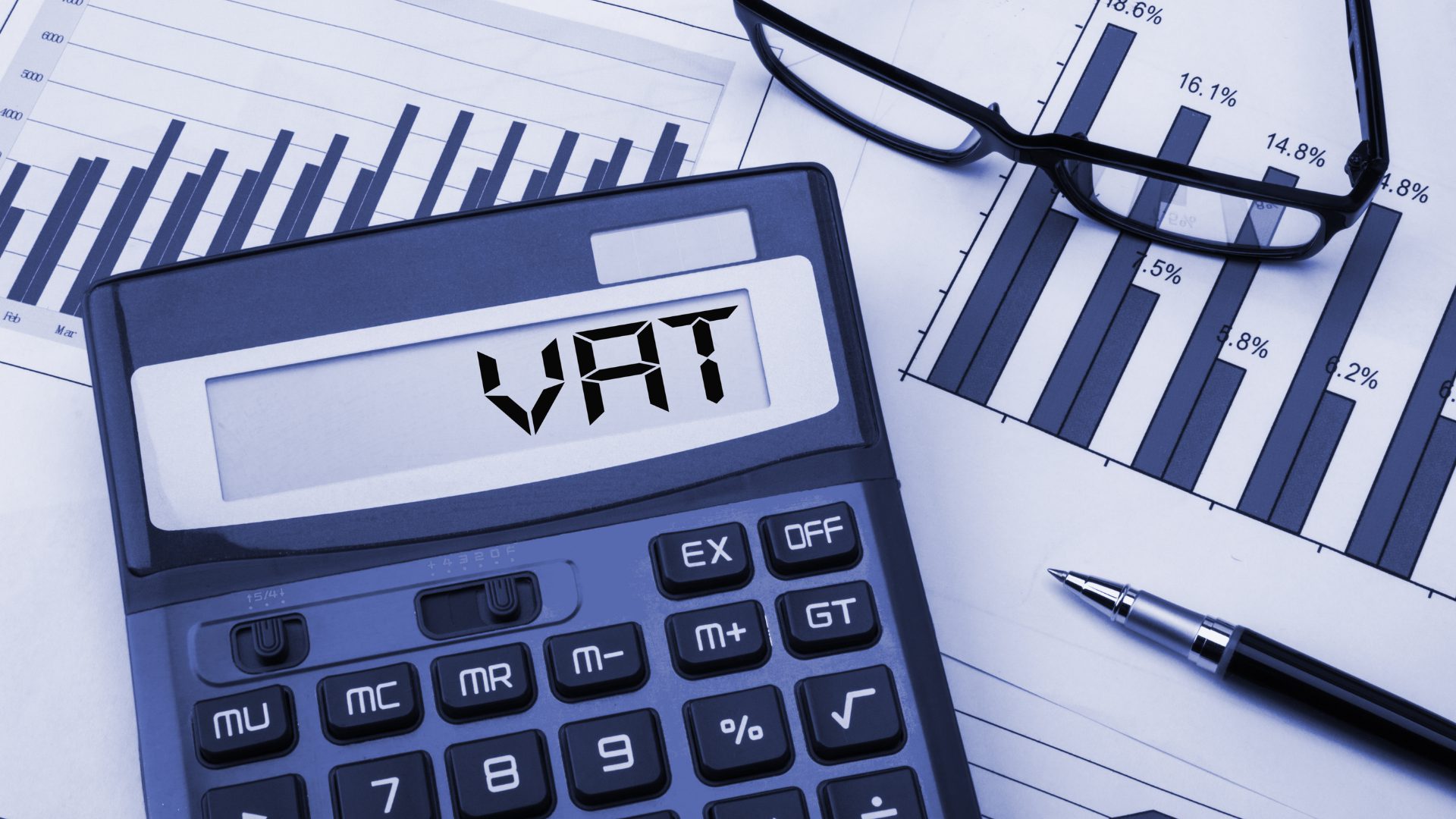
What is VAT?
Value Added Tax in the European Union is a general consumption tax assessed on the value added to goods and services. It applies more or less to all goods and services that are bought and sold for use or consumption in the EU. Thus, goods which are sold for export or services with are sold to customers abroad are generally not subject to VAT.
VAT Application
A VAT-registration number application is based on the European VAT-directive. In this directive it is stated that countries have to issue a VAT registration number to companies performing taxable activities in that country. In the Netherlands there is no specific formal procedure for VAT registrations, so the general rules for governmental bodies apply. The Tax Authorities are obliged to decide within 6 weeks, our in-house team of VAT experts can assist your company with registration.
What are the types of VAT numbers?
A company that is registered in the Netherlands can obtain either a Resident or Non-Resident VAT number.
1. The Resident VAT number
The resident VAT number requires a company to fulfill several substance requirements before it can be considered a ‘resident’ company.
At the moment the tax authorities focus on the office, mainly because a new Dutch BV typically cannot show any other substance in the Netherlands. If you can provide other evidence to show that the company does have an actual business (or have facilities to run an actual business) in the Netherlands, the local VAT can be activated.
In order to successfully obtain a local VAT number in the Netherlands, your company needs to have some substance in the Netherlands. Having customers, suppliers, logistics, warehousing, physical office with employees or a contract with some Dutch companies would significantly boost your chances in obtaining a Resident VAT number.
Additionally, in order to apply for a Resident VAT number, your entity is required to be considered a domestic taxpayer for VAT purposes in the Netherlands, there are a few important points to keep in mind:
- People should really be working from the office in the Netherlands. The moment there is an office space with sufficient resources/facilities/staff to operate as an independent business, you can say that there is a ‘Permanent Establishment’ in the Netherlands.
- If the employee and the director (who is giving instructions to all contractors) are working in the office for the BV – which means that the services for the BV are performed from the Dutch office – then you can argue that the condition is met and therefore there is a ‘Permanent Establishment’ in the Netherlands.
- It is very important that the employee and the director receive a salary that is appropriate to the nature of the activities being performed by the BV in the Netherlands. Real work must be done from the Netherlands that matches the size of the Dutch part of the company.
It is understandable that as a newly incorporated company you might not have any substance in the Netherlands yet, however, it is advisable to show the intention that you plan to establish substance here, for instance:
- Local management – intention to hire director(s) based in the NL to manage and make decisions from the Netherlands.
- Physical office – intention to hire future employees to operate the company from the Netherlands.
- Logistics / Warehouse – intention to engage third party logistic company or to rent a warehouse.
If your company does not have any connection to the Netherlands and does not plan to have any in the future, the chances of obtaining a local VAT number are quite low.
Aside from the practical matter, there is also the legal matter. The application of a VAT number means that there should be a ‘Permanent Establishment’ from which the client operates. In case such permanent establishment is not present, the tax authorities can reject/revoke a VAT number, and they can suggest applying for a non-resident VAT number.
2. The Non-Resident VAT number
Non-resident companies doing business in the Netherlands, may have to file a VAT return (turnover tax, BTW). If so, they need to register for VAT with the Dutch Tax and Customs Administration
Below you will find a checklist for a Non-Resident VAT number.
Registration of Non-Resident Entrepreneurs
- Do one or more of the following questions apply to you?
- In the Netherlands, do you sell goods to private individuals?
- From the Netherlands, do you sell goods to individuals from other EU countries?
- In the Netherlands, do you sell goods to other foreign entrepreneurs?
- From the Netherlands, do you sell goods to entrepreneurs from other EU countries (Intra-Community supplies)?
- Do you bring your own goods from the Netherlands to another EU country?
- From the Netherlands, do you sell goods to customers to outside the EU?
- Do you have Intra-Community Acquisitions (ICA) in the Netherlands?
- Did you receive any invoices with Dutch VAT that has been reverse-charged to you?
- Do you have other deliveries in the Netherlands subject to VAT?
- Do you charge VAT for services provided in the Netherlands?
If the above applies to you, the Non-Resident VAT number can be obtained.
Please note that the non-resident VAT number has some limitations, such as the Article 23 exemption (no VAT on import) is in most cases not permitted.
If you are interested in the Article 23 permit, then you could use the services of a Fiscal Representative to apply for the Article 23 exemption anyway (for which a bank guarantee can be requested by the tax authorities).
As a foreign entrepreneur based outside of the Netherlands, if you prefer to expand/launch your business in the Netherlands without complicated tax obligations, foreign companies may register in the Netherlands for VAT without the need to form a local company; this is known as Non-Resident VAT trading. There is no VAT threshold in the Netherlands for the registration of non-resident traders; a VAT number must be in place before the commencement of taxable supplies.
You might consider the following advantages to register a Non-Resident VAT number without incorporating a Dutch legal entity:
- Less tax compliance obligations (you will submit the Corporate Income Tax return in the country where your business is located – familiar tax regulation)
- Less cost (the cost for the incorporation of a Dutch private limited starts approximately from EUR 3,000)
- Evitable unfamiliar legal system (Dutch Corporate Law could be significantly different from your country, you might need professional legal/tax advice in case you establish a company in the NL – corporate structure, tax advice, etc.)
However, there are strict rules in situations where a registration is permitted. Common scenarios which require a Dutch VAT registration include:
- importing goods into the Netherlands
- trading commodities and excise goods within Dutch warehouses
- organising live events, conferences, etc, in the Netherlands
- holding goods in a warehouse in the Netherlands as stock for resale longer than three months
- ‘supply and install’ services over 12 months
- selling goods from the Netherlands to other EU countries
- distance selling to private individuals in the Netherlands, e.g. internet retailing.
Dutch VAT Compliance Requirements
There are detailed rules controlling the recording and processing of Dutch transactions. These include guidelines on:
- Dutch invoice requirements
- Use of the ‘reverse charge’ procedure
- Foreign currency reporting and translation
- Correcting errors from previous returns
- Credit notes and corrections
- Which accounting records must be maintained.
In order to comply with the limited VAT filing obligations, Bolder Launch could be your local representative and file the VAT return on your behalf.
Bolder Launch does not provide financial, tax or legal advice and the information contained herein is meant for general information purposes only. We strongly recommend that before acting on any of the information contained herein, readers should consult with their professional advisers. Bolder Launch accepts no liability for any errors or omissions in the information, or the consequences resulting from any action taken by a reader based on the information provided herein.

